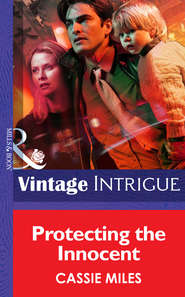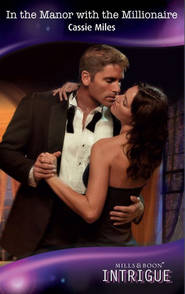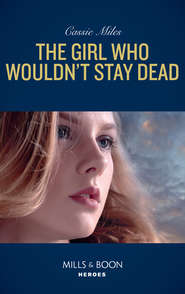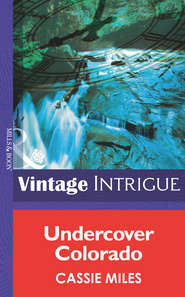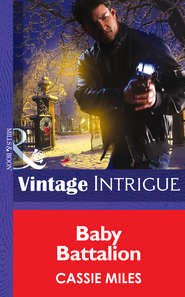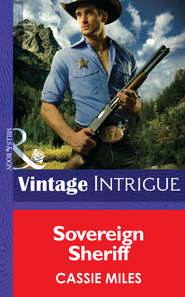По всем вопросам обращайтесь на: info@litportal.ru
(©) 2003-2024.
✖
Mountain Retreat
Автор
Год написания книги
2018
Настройки чтения
Размер шрифта
Высота строк
Поля
“Am I being interrogated?” Still standing, she purposely kept her anger going. “This looks like an interrogation room with the closed door and the table and the big two-way mirror on the wall.”
Special Agent Hawthorne scowled. Her thin lips pulled into an upside-down U. “You’ve been in this room before.”
“And I’ve answered a million questions,” she said. “I’ve been totally cooperative, and I think it’s time I got an upgrade to a comfortable chair and, maybe, a room with windows.”
Ignoring Sidney’s demands, she asked, “Have you been in contact with anyone from Tiquanna?”
“Of course not. If somebody contacted me, I’d tell you immediately.”
Hawthorne regarded Sidney through slitted eyes. “I have information if you’re ready to hear it.”
Hope flickered inside her like a pilot light that refused to be extinguished. “I’m ready. Tell me.”
“On one condition. You must promise not to act on this information. Trust us to do our jobs without your interference. Is that clear?”
“Crystal.”
“Hurtado and his wife will be in Austin next week along with several other South American leaders.”
This was big news. Sidney might have a chance to hear firsthand what was happening to Nick. “I want to see them.”
“I can’t promise,” the thin-lipped agent said. “We’ll do everything in our power to make that happen.”
“Where will they be staying? How long will they be here?”
“You don’t need to know.” As she rose from her chair, Special Agent Hawthorne maintained steady eye contact. Her gaze was a warning. “If they agree to meet with you, we’ll be in touch.”
She turned on her heel and stalked from the room, leaving Sidney with a complicated tangle of anger, frustration and fear. She was afraid to expect too much, but she couldn’t give up. It would be foolish to antagonize Hawthorne, but Sidney’s anger demanded release.
Special Agent Phillips took Hawthorne’s seat at the table, opened a folder and took out four photographs of men in camouflage fatigues. Three of them had beards. “Recognize anyone?”
“Do you think she’ll let me talk to Hurtado?”
“I can’t rightly say,” he said in a Texan drawl.
Over the months, she and Phillips had developed a bit of rapport. He’d seen her at her worst when she broke down into hysterical tears, and she sensed that he was more sympathetic toward her than the other agents.
“I could negotiate with the rebels,” she said. “I know it’s against CIA policy, but I could—”
“C’mon now, Sidney girl.” He poked at the photos. “Let’s do this thing.”
She didn’t want to be a good girl. A lioness would tear these photos to scraps and throw them in his face. She was too docile. Nothing was getting done.
But what choice did she have? Could she single-handedly take on the whole intelligence community? She huffed a frustrated sigh before picking up the photos. This was part of their routine. Because of her memory, the CIA used her to identify men whom she might have met when she visited the country. Thus far, there had been only four familiar faces.
These unposed pictures had been taken in a forested setting. “It’s hard to tell with the beards. I don’t think I know them. Who are they?”
“Rebels,” he said.
“When I was in Tiquanna, I never left the palace grounds. Why would you think I’d know rebels?” She didn’t expect him to answer. “Is it because the palace guards are defecting? Are they joining the rebels?”
“Let’s just say that Señor Hurtado ain’t exactly winning any popularity contests.”
And the CIA wanted to keep Hurtado on their side. Though the dictator had a terrible record on civil rights for his impoverished people, he supported US programs and happily accepted our aid. More important, he was working with neighboring countries to form an oil and natural gas distribution system functioning with US companies.
When Phillips pulled out several aerial photographs of the palace grounds, she groaned. “Not again,” she said. “I’ve told you everything I could about the palace.”
“Focus on this area.” He pointed to a far corner in the walled compound.
She stared. “It looks like the wall is broken. Was it an explosion?”
“Yep.”
A wave of guilt washed over her. In a similar tactic, Nick had disappeared. Six months and four days ago, there had been an explosion targeting the front gates. Two marines had been injured. The last anyone had seen of Nick was when he was trying to rescue them.
Before he left on this deployment, she’d told him not to be a hero, which was impossible advice for a marine. The man lived to protect others. His courage was as much a part of him as his arms and legs. Oh, God, she missed him so much. Without him, her life was empty.
Her fingers gripped the back of the chair. Her knees were weak. Though she wanted to be fierce, the weight of her sadness dragged her down. She sank into the chair.
“Please,” she said, “you’ve got to tell me something about Nick. Those pictures you showed me are snapshots. They were taken from surveillance at the rebel camp, weren’t they? Your people have infiltrated the camp.”
The corner of his mouth twitched. For Phillips, that slight change of expression was more than she’d seen from him in weeks. Sensing a possible crack in the stone wall that kept information from her, she asked, “Do you have photos of Nick?”
“You know how this works, Sidney. I’m here to get intel from you.”
“I just want to know if he’s all right.”
“There’s reason to believe that your fiancé is well.”
The tiny flicker of hope burst into full flame. Something was different about Phillips. He knew something.
She asked, “Is Nick well enough to be rescued? What do you CIA people call it? Extracted. Can he be extracted?”
He pushed the aerial photo toward her. “We need to know about this part of the compound.”
There was nothing to tell. She hadn’t visited that part of the palace grounds, hadn’t noticed anything about the far corner. For the first time, she wondered if it would serve her better to lie and build up the importance of that corner in the hope that she could get more information. But she wasn’t about to play games with the CIA. They were on the same side. She needed to cooperate.
“I was never near that part of the grounds.” She rose from her chair. “I’ve got nothing against you, Phillips. But I need more. Is there anybody else I should talk to? Anything else I can do?”
He leaned back in the chair and folded his arms across his chest. “If you left the room right now and went down the corridor to your left, I wouldn’t stop you.”
“Why? What does that mean?”
“You heard me.”
She took the cue, not knowing what she’d find. Hoping for the best and fearing the worst, her fingers closed on the doorknob and she yanked the door open. Had it always been unlocked? She didn’t know; she’d never tried it before.
After hours, there was no one else in the hallway. One side was all windows, and the other was closed doors. The route she’d always followed when escorted into the building was in the opposite direction. She’d never been this way before.






